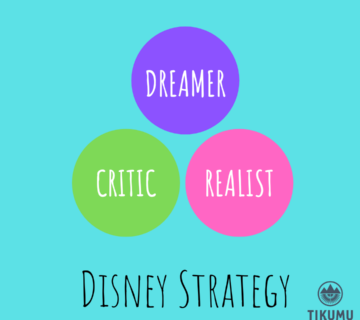Congratulations, you have completed your business plan! After weeks of hard graft and great efforts you have a focused plan you can be proud of. Excellent. Now what?
I can guarantee you, that if you don’t immediately make the plan part of your daily tasks and routine, it, and all your hard work will land up in the bin, never to be seen again.
One of the keys to business success is maintaining consistency in your approach, through all the ups and downs. Developing a plan and sticking to it. If you have a structured yearly plan, then getting “stuff” done even during the “hard” times is so much easier.
Here are 7 tips and hints on how to maintain momentum once you’ve constructed your plan.
- Vision and your why
In business, we sometimes hit those downer days. On these days we might ask “Why am I doing this?” If you don’t know what your why is, the key reason for being in business or being in the position you are in, then you can and will get easily distracted and despondent, which is bad for business. So, think about your why. Be very clear on this and remind yourself often.
“Working hard for something we don’t care about is called stress: Working hard for something we love is called passion.” ― Simon Sinek
- Long medium, short term and micro goals
Business planning often focuses on long term and medium-term goals. Many strategic plans will focus on what the business is aiming for in 12, 24, 36 months or even goals to be achieved in 5- or 10-years’ time.
It is great to have a long-term vision, but this is often something that cannot be reached in a week or a month. This lack of achievement can be de-motivating and cause the long-term goal to become just a dream with no real effort being made to achieve it.
To overcome this lack of action it is important that long-term goals are broken down into medium- and short-term goals. Ask yourself, what do I want to achieve in a month? How can that be broken down into a week? Once you have the week’s goals take it one step further and break those down into micro goals or daily goals.
Every day you should have micro-goals, which can be related back to your short, medium and long-term goals.
“A goal properly set is halfway reached.” — Zig Ziglar
- Micro goals become your to-do list
As mentioned above you should have focused micro goals for each day. To make these actionable, transfer them into your daily calendar/diary. Block out the time you need to complete these tasks. By doing this, it ensures you can realistically complete everything and that you are not overcommitting or being unrealistic with your time.
You also have the opportunity to book in your daily meetings and exercise routines, or other key tasks you need to be doing besides work.
“The thing about goals is that living without them is a lot more fun, in the short run. It seems to me, though, that the people who get things, who lead, who grow and who make an impact… those people have goals.” —Seth Godin
- Have measurements
Lord Kelvin said that if you cannot measure it, you cannot improve on it. Therefore, if you don’t set benchmarks and targets when setting goals, you will never know if you have reached them. Once you have set a goal, ensure it can be measured. These are what you check on a weekly, monthly, quarterly and annual basis.
- Outsource tasks
There are very few of us who love every single part of running a business. The tasks or activities that we love we tend to action first and the tasks we hate are more often than not shifted from one “to-do” list to the next, never to actually be achieved. If you can afford it, budget for certain tasks to be outsourced. This may be your marketing, accounts or sales activities. Outsource the tasks you don’t like and focus on what you are good at.
“If you deprive yourself of outsourcing and your competitors do not, you’re putting yourself out of business.” – Lee Kuan Yew
- Book in quarterly reviews – AAR (After Action Review)
Follow up and review are essential components to any business plan. We need to know where we are at any given point. This helps to keep us agile and flexible in shifting tactics. This keeps us proactive and in control. By not reviewing your status, you may veer off the plan and not be aware. This can waste time, effort and energy and lead to demotivation and lack of momentum. Keep on top of your plans and constantly review.
“If you don’t know where you are going, you’ll end up someplace else.” – Yogi Berra
- Celebrate the wins
“Remember to celebrate milestones as you prepare for the road ahead.” – Nelson Mandela
Sometimes we get stuck in a rut of only seeing the gaps or the weaknesses in our businesses, and fail to step back and acknowledge the wins.
Take the time every day to seek out what is going right. Look for people doing well and celebrate all achievements.
- A business strategy is not enough - June 3, 2024
- Networking – quality or quantity? - February 19, 2024
- How behaviour profiling can work for your business - January 5, 2024




